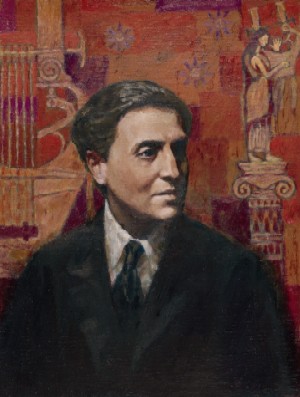
|
Oops! Something went wrong!
The application has encountered an unhandled error.
Our technical staff have been automatically notified and will be looking into this with the utmost urgency.
|
Since 1987 the New Zealand String Quartet (NZSQ) has been New Zealand’s leading chamber ensemble, with a distinguished record of international touring success and a body of acclaimed recordings. Much loved by audiences at home and around the world, the Quartet performs over 80 concerts to popular and critical acclaim each year.
Career highlights have included highly praised performances at London’s Wigmore Hall, The Frick Collection in New York and the Library of Congress, Washington, DC. The Quartet’s extensive discography includes works by Brahms, Mendelssohn, Bartók, Ravel, Debussy, Beethoven, Schubert, Dvořák, Wolf, Berg, Takemitsu, Tan Dun and numerous New Zealand composers, including the complete chamber works for strings by Douglas Lilburn. The NZSQ has released three-album sets of both Brahms and Mendelssohn chamber music works for Naxos.
The ensemble has been quartet-in-residence at the New Zealand School of Music at Victoria University of Wellington since 1991, where three of the members are associate professors. Violinist Helene Pohl and violist Gillian Ansell are co-artistic directors of the biennial Adam Chamber Music Festival in Nelson and the longest-serving Quartet members have been awarded the Member of the New Zealand Order of Merit (MNZM) honour for services to music in New Zealand.
For more information,visit www.nzsq.org.nz.
 Photo: Bruce Foster
|

The so-called Second Viennese School of Arnold Schoenberg has exercised a strong influence over the course of music in the 20th century. Schoenberg’s pupils Alban Berg and Anton Webern, each with an individual musical language, put into practice the general principles of atonality (music without tonality or key centre), and 12-note music or serialism (music based on a series of the 12 semitones or half-steps of the modern scale).
Opera
Berg wrote two important operas: Wozzeck, a study of insanity based on the play by Büchner, and the unfinished Lulu, based on Wedekind.
Orchestral Music
Berg’s Violin Concerto and Chamber Concerto are important works in 20th-century repertoire. His Lyric Suite for string quartet was later orchestrated in part, while the delicately orchestrated Three Pieces of 1914–15 occasionally appears in modern concert repertoire.
Piano Music
Berg completed his Piano Sonata, Op 1, (which reflects the teaching of his master, Schoenberg) in 1908—in his earlier, tonal period.

The Austrian composer Hugo Wolf carried still further the expressive power of the German Lied. His later life was clouded by illness, depression and final insanity, after a period of intense activity as a composer.
Songs
Collections of songs by Wolf include the 53 Mörike songs of 1888, settings of Eichendorff, 51 Goethe songs completed in 1889, the Spanisches Liederbuch of the same year, and the two collections of the Italienisches Liederbuch, the first written in 1891 and the second in 1896. These, along with the many other songs written between 1888 and 1897, form a remarkable body of work in which the texts set were given prominence in performance and served as the real and acknowledged inspiration for the music.
Instrumental Music
Wolf wrote or started to write orchestral compositions, chamber music and works for piano, many of these in the earlier years of his career. The best-known instrumental work is his Italian Serenade of 1892, a movement for string quartet to which he planned to add further movements and make a suite for small orchestra. It was first performed in 1904.






























